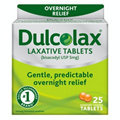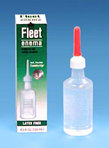
Doctor’s Note: Post-Surgery Constipation
Discussing bowel movements is probably not your favorite thing, but constipation after surgery is an issue many people deal with. It can be embarrassing, uncomfortable, and even painful. Don’t feel like you’re alone though, it is a very common issue. There are a variety of ways to prevent constipation or to relieve it early on.
Lifestyle Habits
Before going into various over the counter medications or prescriptions, I recommend some easy lifestyle habits to keep your body healthy and regular:
- Be active: especially after surgery! Don’t overdo it, and follow your doctor’s recommendations, but be as active as you can. Exercise is one of the key factors in preventing constipation. It stimulates your muscles to contract and moves food through your digestive system at a faster rate.
- Drink plenty of fluids: lots of water and 100% fruit juices before and after surgery will help keep your bowels soft. Try and drink 8-10 glasses of water per day before and after surgery. Don’t forget though, no foods or liquids 8 hours before surgery!
- Eat foods high in fiber: fruits, vegetables, nuts, oatmeal, whole-wheat pasta, brown rice, and lentils. For a more extensive list of foods visit the mayo clinic website. There are two types of fiber, soluble and insoluble. Both are healthy and play an important part in digestion. Soluble fibers (oats, fruits, nuts, beans, cucumbers etc.) turn into a gel-like substance that slows your digestion down, making you feel full longer and helping control weight. Insoluble fibers (green leafy vegetables, green beans, celery, carrots) do not dissolve at all and add bulk to your stools. This helps food move quickly through your digestive system.
- Avoid foods: that cause constipations, including bananas, white bread, white rice, dairy products, and processed foods.
Over the Counter Products
Having good lifestyle habits is not always enough, especially after surgery. Anesthesia causes constipation because it slows down movement in the gut and depresses the central nervous system. Some people may have little to no problems after anesthesia while others may experience the side effects for up to a couple weeks after surgery. Narcotic pain medications and muscle relaxers can also cause constipation. They increase the amount of time it takes for food to get through the gastric system and decrease the urge to defecate. A few ways to deal with post-operative constipation are:
 Begin stool softeners, like Colace or Dulcolax Stool Softener, before surgery and continue after surgery. Stool softeners work by allowing water into the stool to help prevent dry, hard stools. While they don’t cause a bowel movement, they help soften the stool to make it easier to go without straining. Stool softeners are not fast acting and typically produce a bowel movement between 12 and 72 hours. It is important to take stool softeners with plenty of water. When taken without water it can actually make the constipation worse.
Begin stool softeners, like Colace or Dulcolax Stool Softener, before surgery and continue after surgery. Stool softeners work by allowing water into the stool to help prevent dry, hard stools. While they don’t cause a bowel movement, they help soften the stool to make it easier to go without straining. Stool softeners are not fast acting and typically produce a bowel movement between 12 and 72 hours. It is important to take stool softeners with plenty of water. When taken without water it can actually make the constipation worse.- Take a laxative, like MiraLAX or Dulcolax Laxative. MiraLAX works by bringing water into the bowels while Dulcolax works by stimulating the intestine to produce a bowel movement.
- If you are able, reduce the amount of narcotic pain meds you are taking. Try taking Tylenol instead.
Additional Products to Try
If, after 48-72 hours after surgery, you haven’t had a bowel movement, more extreme measure can be taken:
- Suppositories, like Dulcolax Laxative Suppositories, can be purchased over the counter. The suppository is inserted into the rectum and typically causes a bowel movement in 15-60 minutes. Read the directions carefully before use. Suppositories work by stimulating the muscles in the intestine to promote a bowel movement.
 Enemas, like Fleet Enema, may be used in nothing else is causing relief. An enema, although slightly uncomfortable, typically provide relief within 5-10 minutes. Fleet Enema works by increasing fluid in the small intestine. Do not use enemas for an extended period of time.
Enemas, like Fleet Enema, may be used in nothing else is causing relief. An enema, although slightly uncomfortable, typically provide relief within 5-10 minutes. Fleet Enema works by increasing fluid in the small intestine. Do not use enemas for an extended period of time.
When to Call your Doctor
If your constipation doesn’t improve after trying these methods, talk to your doctor as soon as possible. Also, if you are experiencing a combination of the following, visit your local ER or Urgent Care ASAP:
- Severe abdominal pain
- An inability to pass gas
- Vomiting
- Stomach bloating
These can be a sign of a bowel obstruction and require attention immediately.
Please call our office if you have difficulty with constipation after following some of these easy “at home” remedies at 972-566-7300






